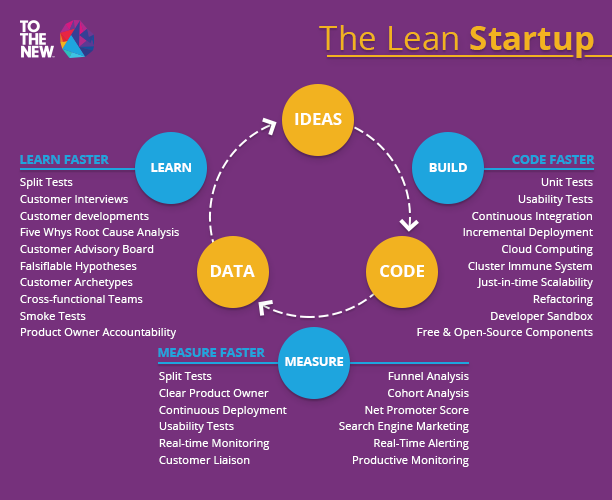DevOps for Startups – 6 Technical Considerations Before You Kick Start!
Companies around the globe are investing a lot of time, money and efforts in building innovative products. In such a competitive landscape, it is highly critical to maintain the business agility and improve time to market. A decade back operations and development teams used to work in silos making the release cycles long. Over the last few years, Cloud DevOps has revolutionized the way products are built and improved the relationship between Development and Operations team, making them more collaborative and in sync with one another.
DevOps doesn’t just help to improve time to market and bring business agility but also help to automate the delivery pipeline and let the code be in the releasable state always.
Remote DevOps is leveraged by various large scale companies across industries such as retail, supply chain & logistics, manufacturing and e-commerce. Companies large in size are able to automate their delivery pipeline, orchestrate their infrastructure and drive maximum benefits of Cloud and DevOps. However, implementing automation is a growing challenge for startups. Startups have enormous pressure to sustain and scale with a limited investment capacity. Moreover, startups also need to evaluate multiple technical considerations before riding the DevOps bandwagon.
In this blog, we would outline some critical technical considerations which would benefit startups in implementing DevOps:
1. Tagging – Tagging resources is a good practice and most often development teams do not tag resources correctly or forget to do it. In one of our use cases, we had an e-commerce site running on 400+ servers but no tags. Without tags, it was difficult to identify the instance, volume, and load balancer in use and provision the capacity respectively. The resources that are tagged could be monitored using various tools and alerts. Development teams can set up notification alerts for resources that are provisioned without tags.
2. Dockerization – Dockerization or container-based virtualization is quickly gaining traction and this is mainly because most startups find it challenging to manage virtual machines for their local, development or testing environments. Dockers are light, portable, reusable, simple and cost-effective. Moreover, containerization eliminates all the baggage of virtualization by getting rid of the hypervisor. Startups need to take into account the benefits of Dockerization while bringing Development and Operations closer.
3. Sensible utilization of resources – Provisioning or de-provisioning the resources in real-time is crucial to remain cost-effective. For eg. during seasonal traffic hikes, an e-commerce company might like to provision more resources than usual. Startups that do not monitor their needs fail to provision resources optimally, leading to higher costs and compromised user experience. Some of the modern startups have also implemented auto scaling which helps them to maintain application availability and scale the capacity up or down automatically.
4. Continuous producibility with Agility – Most startups have the fear to lose out against competitors. They need to ensure continuous and faster producibility to maintain the stronghold in the market. Continuous integration and Continuous development improves the build quality, automates the delivery pipeline, shortens the release cycle and enables a faster time to market. Moreover, apart from making the business Agile, startups also need to think about continuous improvement. Using right DevOps and infrastructure monitoring tools, startups can optimize resource provisioning and orchestrate assets better.
Here is when the idea of a lean startup comes into existence:

5. Continuous monitoring: It is a common myth that only large scale enterprises require constant infrastructure monitoring whereas startups can do away with it. Over-provisioning is a common problem with startups and continuous infrastructure monitoring can resolve this as well as many other issues. Using infrastructure monitoring tools, startups can monitor their resources and set up automated alerts to improve uptime. Startups would also get enriched monitoring using dashboards and analytics offered by these tools. Certain monitoring tools also help to monitor the system performance, CPU utilization and assess possible threats and vulnerabilities enabling startup owners to take preventive measurements well in time. Startups can also hire managed infrastructure service providers to manage the health of their infrastructure including incident management, change management, and replica management.
6. Portability – While building products, consider the portability aspect. It might happen that product is built for the legacy platform, but because of poor performance, there is a need to move it to a fault-tolerant platform going further. This is mainly because most startups are evolving in nature and their requirements change over time. In such cases, migrating workloads to different platform becomes impossible. Startups should build products in a way that it is easy to move them to different platforms such as AWS, Azure, Google-Cloud, Datacenter or on a self-hosted hypervisor layer. While evaluating these platforms, there are further considerations that startups need to take into account such as SLA, legalities, the cost of migration and security.
Traditionally, companies used to build final product, incorporate the feedback of the stakeholders and iterate the product basis such feedback. This has changed with more and more startups embracing Agile methodologies and iterative development. DevOps helps to automate redundant tasks and shorten the releases enabling faster time to market. Using various continuous integration and development tools, monitoring tools and orchestration tools, startups are able to manage the health of their infrastructure efficiently. DevOps is certainly a key enabler for startups however, they need to take into account the technical considerations and best practices for leveraging it in an optimum way.


I just wrote a blog post called “Devops for Startups & Small Teams” thats basically a minimal checklist for implementing devops, which would pair well with your principles of devops post. It shows developers exactly what they can do at different stages of product development.